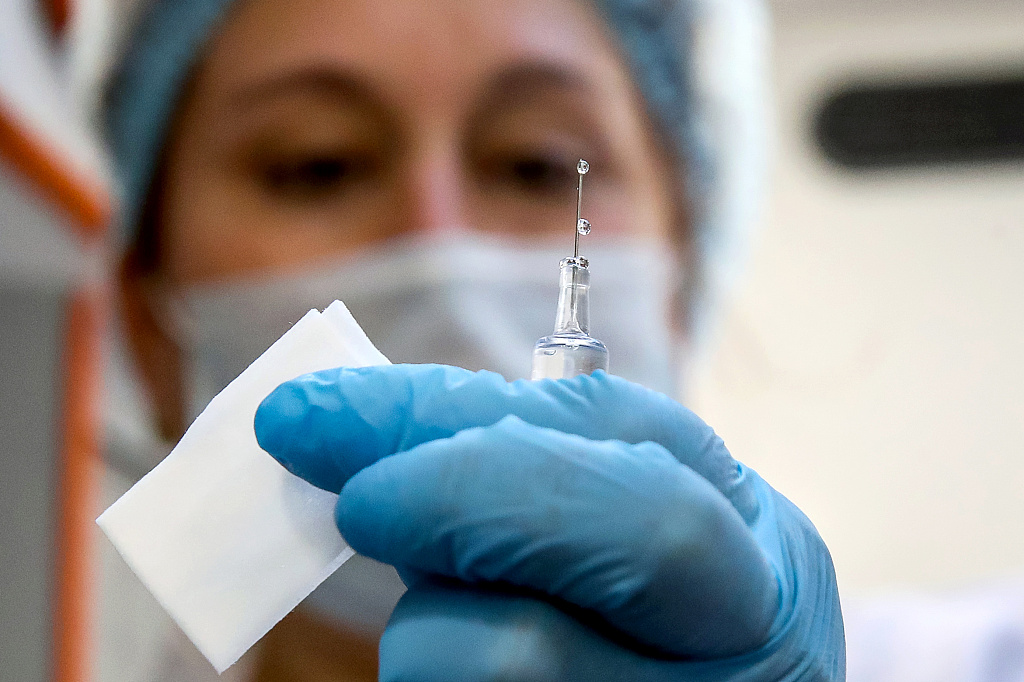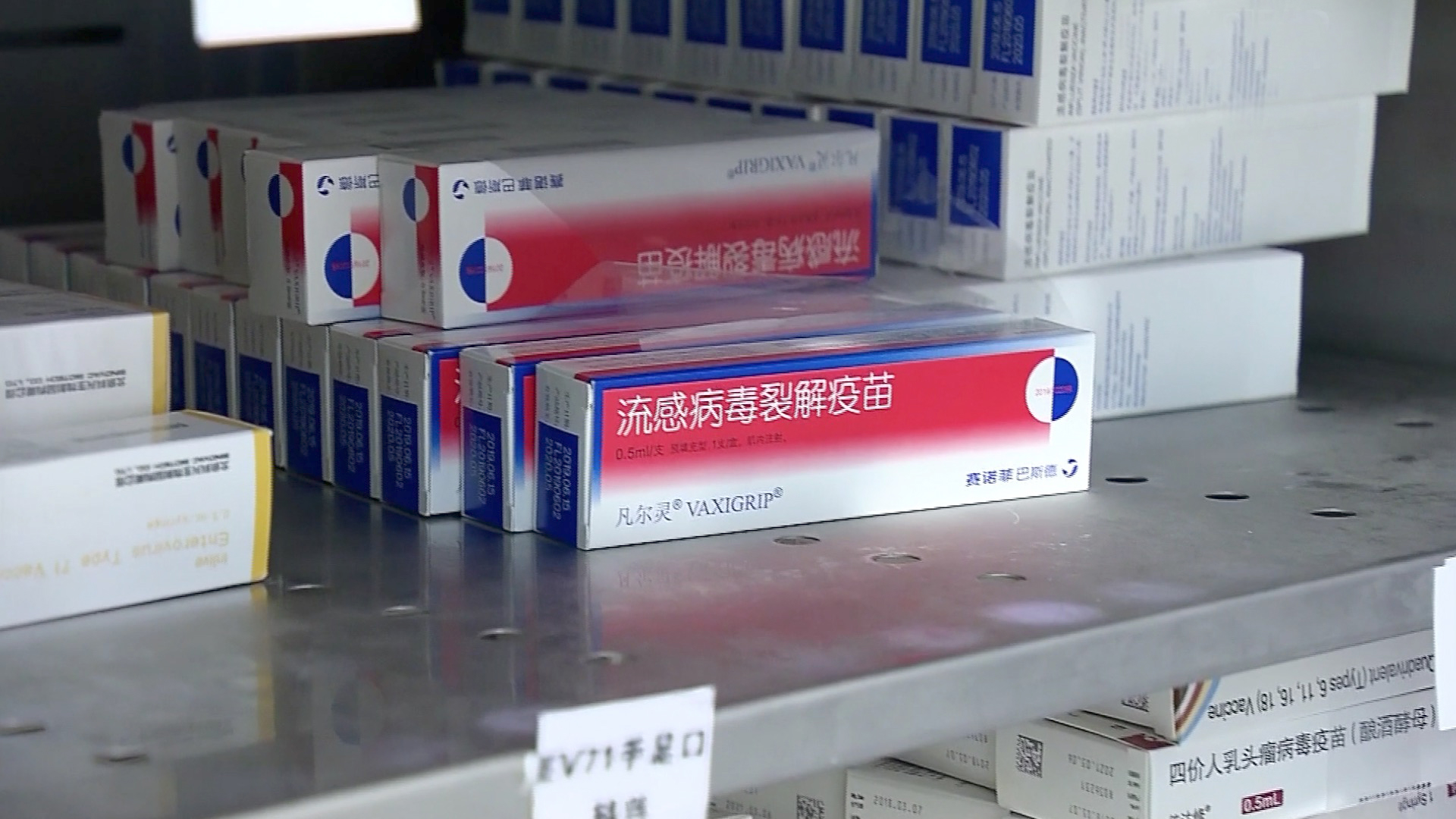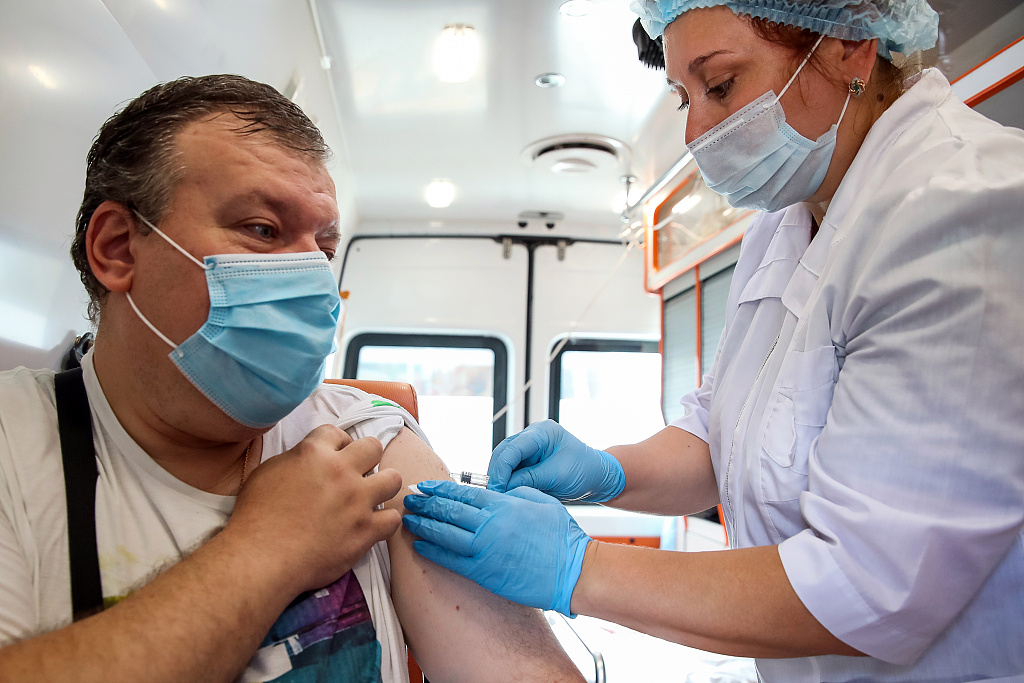
VCG
With flu season right around the corner, experts have begun to worry about a "twindemic:" the continuing COVID-19 pandemic plus a season influenza epidemic hitting the population simultaneously.
Health experts have been urging the public to get vaccinated with the flu shot, saying preventing the flu is much more critical amid COVID-19.
Mr Zhang is 75 years old, and he gets the flu shot every year as he has chronic obstructive pulmonary disease, which causes chest stuffiness and breath difficulties.
"If he gets flu, his symptom will become more serious, so I'm going to take him to the hospital to get vaccinated with the flu shot again this year," his son Zhang Yiyan said.
Another woman, a mother of two, told CGTN that she is going to get her children and her family the flu shot this year so that they can reduce the chance of going to hospitals and exposing themselves to someone with COVID-19.
"I have been paying attention to the vaccination, and I hope I can make an appointment as soon as possible," Chen Tian said.
02:43

Why is it so important to get the flu shot this year?
WHO officials stated last month that countries should increase influenza vaccination rates in the flu season, explaining that it's difficult for the public to tell whether he/she has COVID-19 or the flu or something else due to the similar earlier symptoms, so getting vaccinated against the flu could at least reduce or exclude the probability that one has the flu.
Additionally, the WHO pointed out that the already limited medical resources will be further strained when people flocked hospitals due to influenza.
Dr. Gao Fu, director of Chinese Center for Disease Control and Prevention, encouraged people to get the flu vaccine first and wait for a coronavirus vaccine.
He told CGTN last week that so far the safety and efficacy of the coronavirus vaccine is still unknown, but "for the flu, at least we know it's safe and with some percentage of efficacy, and also because of the years, we know it works and the quality control is good."
Dr. Zhang Wenhong, China's leading COVID-19 expert, also suggested people get vaccinated for the flu, saying it's the "most reliable" protection for families so far.
He said catching the flu could make one more susceptible to COVID-19 and vice-versa, because infection from one virus could tax the immune system, making it easier for other invaders to enter and cause more havoc.

Moscow began mass flu vaccination on September 1. /VCG
"At the very least, with a flu shot, even if you get infected with COVID-19, your condition will not get any worse because you're already free of the flu," Zhang said.
Other experts pointed out that since it's possible there would be a twindemic in the fall and winter, it's important to reserve the already limited medical resources for COVID-19 patients and frontline medical workers. By reducing chances of catching the flu and needing to seek medical attention for it in hospitals, people can conserve the already scarce medical resources.
Wang Chen, a renowned respiratory and critical care medical expert in China, suggested that it's better to get vaccinated with the flu shot closer to the start of flu season in September and October. However, as long as flu viruses are circulating, it's still beneficial to get a flu shot.
He explained that after one gets the flu shot, it takes about one to two weeks for the immune system to mount enough of a response to have some protection. Then once one has a reasonable level of protection, the protection tends to last on average for six months. In the case, if a person gets vaccinated in October, he/she will be protected in the following six months during which flu viruses are particularly active.
He also cautioned that flu vaccines aren't 100-percent protective. "It's not as if one day you got the flu shot and you will never have a chance to get flu in the six months."

Medics prepare to give flu shots to elders in a clinic in Nanjing, Jiangsu Province, China. /VCG
Will there be enough flu vaccines?
Official data shows that the annual vaccination rate of influenza is about two percent in China, but experts say due to the coronavirus, people's willingness to be vaccinated with flu shot has increased significantly.
In Shanghai, local disease control department estimated that the demand for flu vaccines in the fall and winter will increase by about 50 percent compared with the previous year. In Gansu Province, local officials said that the peak of flu vaccination has already arrived and COVID-19 is a major reason.
Pharmaceutical companies in China usually don't produce too many flu vaccines as they are valid for only one year and few people are willing to get vaccinated. Concerns about the shortage of flu vaccines have thus arisen.
However, according to officials, as of Tuesday, over 15 million doses of flu vaccines have been issued by authorities, including quadrivalent, trivalent and freeze dried, a live monovalent vaccine by intranasal spray. In addition, the number of companies authorized to issue influenza vaccines this year has also increased.
Vaccine experts estimate that the number of flu vaccine in the market will be doubled compared with that of last year (20.83 million doses).
 简体中文
简体中文






